- Home
- Richard Laymon
Dreambox Junkies Page 6
Dreambox Junkies Read online
Page 6
And now he had the boxmares to worry about. The dethan tabs hadn't done their job—why?
“Paulie?” Ruth's voice, quiet and gentle, brought him back. “Paulie, go with her."
[Back to Table of Contents]
* * *
Chapter 7
“This is a shop? You sell things?"
The PsyTri woman was admiring one of the four wooden boxes Ruth had out on the shelves. The chunky little jewellery box she'd knocked together out of reclaimed spruce and stained with rosewood.
Wise choice, Ruth thought.
It had very nearly been bought by that big-titted American tourist a couple of weeks back. God, she'd had a pair on her, and for once they'd looked like natural human tits. Paulie hadn't been able to keep his eyes off them. That was men for you.
“Is this one for sale?” asked the PsyTri woman.
Ruth nodded and, watching the woman examine the price tag, felt one of her little flushes of pleasure. She always got them when people prepared to make a purchase.
“It's gorg."
“Do what?"
“It's gorgeous. Could I buy it?"
“Yeah, if you like."
Paulie had gone off to get cleaned up. Kali had gone back to sleep again in her cot.
“Look it doesn't have to be immediately,” the woman explained, out of the blue. “The trip, I mean. I'm not necessarily expecting anyone to come back with me right now. I could arrange for a car in the morning. Whenever. I only popped over like this because there seemed to be no other way of making contact.” She offered her transac ring. “I suppose you think it's all a bit ... overdramatic?"
Ruth touched rings with her. “Shall I wrap it for you?” It was funny, selling something so late at night, to a customer who had come down out of the sky. It was a first and probably wouldn't happen again. “Where did you come here from? London?"
“Mmm-hmm."
“I couldn't live in London."
“No?"
“It was a mad place last time I was there. Must be even worse now. You wanted it wrapped, did you say?"
“Maybe if you could just pop it in a bag or something?"
Ruth hunted around for a paper carrier.
The woman asked, “You make all these yourself?"
The door to the workshop had been left open; you could see all the tools on the wall.
Ruth nodded. She was wondering how much to say about Paulie. With regard to his problems. She couldn't help feeling that some word of warning was called for.
She said, finally, “Paulie's had ... a bad time."
The woman looked sympathetic, and Ruth tried to decide whether to explain about Paulie's breakdown. But it was their own private business. Yet she felt a need to excuse the state he was in; to make it clear to this woman that the Paulie she saw here was a shadow of the real Paulie Rayle.
And I bet, Ruth thought, you've got this idea in your head that even though it sounds like Frances is going round the bend—she always was halfway round, if you ask me—and even though I'm telling him to go, I'm really shit-scared of him going back to her? Well, cleverclit, you're not wrong.
* * * *
The pilot started the motor. They waited for Paul Rayle. Fidgeting in the verticar's uncomfortable passenger seat, Sesha opened the carrier bag, lifted the lid of the wooden box, and peeped in at Bubu Flumpkin.
Her heart was pounding.
What had she done?
A criminal impulse had taken possession of her, compelling her, when Ruth had gone to put the baby to bed, to reach out with her foot, rescue Bubu Flumpkin from where she had spotted him, in the shadows beneath that lovely wooden credenza, and kick him swiftly out of sight beneath her own chair. And when, in doing so, she had caught sight of—unbelievably—the still-attached Flumpkins tag, she had almost fainted, so unimaginably serendipitous was it. As soon as the opportunity had presented itself, she had snatched Bubu up off the floor and stuffed him into the wooden box; his beany little body had been quite happy to be squashed into a square space.
And then she had sat there feeling dreadfully, dreadfully guilty, and not a little frightened. Had she, in anticipation of her crime, sought to purchase something, anything of Ruth's in order to assuage her conscience? No. The suggestion was unfair; the box was beautiful. She would have wanted to buy it, regardless.
So her collection was finally, after all this time, complete. She now had every single Flumpkin, from Abab Flumpkin to Zizi Flumpkin—and all with the original tags. She had fulfilled the dream she'd first had as a nine-year-old. Two decades and more, it had taken her. And heaven knew how much money. Bubu had been—she knew it was silly—her Holy Grail.
And now she had Bubu.
But to have obtained him by theft...
In retrospect, it seemed more than likely that Ruth and Paul Rayle were both utterly unaware of the value as a collectable of the little purple part-dog, part-rabbit, part ... what? hippopotamus? Or why should it have been left lying around under the furniture? Perhaps, Sesha thought, they would have been quite willing to sell? She would have met any reasonable demand. Why hadn't she done what any normal person would do and simply asked?
Intuition, was why.
Bubu Flumpkin belonged to their baby. To Ruth, it wouldn't matter what he was worth, how much money was offered. She would not sell—she would not dream of selling her baby's toy. Even if the child was too young to get much out of playing with it, or to miss it. You just didn't go selling your baby's toys to people. Maybe it was what they did in the city, but not here, thank you very much.
Sesha had intuited all of this and understood, accepted, empathized, and approved. And yet, still, she had gone ahead and stolen Bubu Flumpkin. Not out of spite; such playground actions were, she hoped, beneath her dignity. And in any case, she had found herself warming to Ruth somewhat, revising her opinion of the woman, before she'd spied Bubu down there on the floor, recognized those flippy-floppy ears.
So what motive for theft was defensible? Fear of being denied that which she felt she had a right to possess, simply because she had been searching high and low for it for so many years, and there it was, wasted on a small baby?
What would Ruth think of her? Ruth would, of course, know who had taken the Bubu. There was still time to throw it back, throw it out onto the field. With any luck, it would soon be recovered.
Sesha dithered.
There were figures in the doorway of the house. Paul Rayle, Ruth, and their baby, awake once more.
The wooden box wouldn't close properly. Something trapped. Bubu's ear. Sesha pushed it in and closed the lid.
* * * *
Processia Roffey was waiting for him in her verticar. The din of the motor was deafening, and Paulie reflected that the manufacturers would have to do something about that problem if they wanted enclosed-lift vehicles to become more than expensive gimmicks.
Kali was crying again; you couldn't hear her voice, but her face was all scrunged up like a little red cabbage. Ruth was comforting her.
Paulie felt bad.
Ruth gave him a kiss, said she wished Frances well. It caught at his heart; Ruth could be so deeply good about things. He promised he'd return just as soon as he could. He really didn't want to go, and he made a face that let Ruth know as much. Ruth nodded understanding, but then indicated the verticar outside. They were waiting for him, and the sooner he got out there and up and away, the quicker she could quieten Kali down.
Paulie kissed his baby daughter, kissed her mother, then headed out across the field toward the light and noise.
Sesha Roffey had a slightly strange look on her face—getting ready to be airsick? That would make two of them. He climbed in beside her. The door closed and the soundproofing cut in. She said to him, “Thank you for coming.” And then she added, “Sorry about the seats."
Paulie soon found out what she meant. The comfort level left something to be desired. No sensors or auto-adjusts. Was this the only verticar they could get hold of at short notice?
Angel Syndrome had got its name, unsurprisingly, from the way its sufferers came to believe that they were turning into angels. In every case, death from heart failure had followed, apparently triggered by a kind of emotional overload, a fatal excess of feeling. So far, AS had struck down two rich old biddies in California, one in Switzerland, a Welsh lottery winner, and a Dutch billionaire in the Bahamas. All, curiously enough, had opted for freezing: five cryocorpsicles stashed away in the unsure and uncertain hope of the resurrection to come.
Poor Frances, blowing all that money on burning her brain.
The syndrome manifested itself in random attacks of increasing intensity. The sufferer would faint and, on coming round, would for a short time experience a sense of imminent transcendence, which would then dissipate. A prompt injection of Socratosine, a paraphenothiazine depressant, achieved some reduction in the the physical cost of these attacks, but little else.
Of the others, the wealthy hundreds who had undergone telotherapy without, thus far, any adverse side-effects, it was proving extremely difficult to ascertain whether the ageing process had been halted, or even slowed down. Time alone would tell.
And all of this because there was, supposedly, an ’emortal’ mouse in a laboratory in California. ‘Emortal’ as opposed to ‘immortal’ since the mouse remained vulnerable to any disease or accident catastrophic enough to overwhelm its powers of cellular renewal.
The mobe interrupted its lecture to announce that they had just cleared the jam zone; calls could now be made and received, and would a Netsearch for additional inf on Angel Syndrome be at all helpful?
Paulie blinked No. He thought, What am I doing here, getting into this? Do I feel sympathy for Frances? I don't know. All of this is light years away from my world.
Taking off the smartspecs and burying his face in the sickbag, he threw up again, reactivating the verticar's OdourMurder unit.
He felt a hand on his shoulder.
Nice of Sesha Roffey, giving comfort and support.
Her fingers dug into him, hurting him.
Paulie looked up.
Sesha Roffey was staring. Paulie followed her eyes to the pilot. The pilot was grinning back at them over his shoulder. Not grinning voluntarily, but being cartooned, forced to grin. The pilot had out his penis and was masturbating vigorously.
Sesha licked her lips, being determinedly obscene and deliberate about it. Not that she wanted to—disgust and embarrassment kept flashing through her eyes—but she clearly couldn't help herself. Then the pilot was licking his lips, and so was Paulie; now all three were doing it together, lascivious and rhythmic, like some experimental theatre troupe.
Paulie felt Sesha grip his wrist. She tugged at his arm, pulled his hand down under her skirt, eagerly parted her thighs to accommodate him while, with her other hand, she unzipped him, fumbled greedily in and seized hold of him. Paulie could do nothing to keep his legs from opening for her. They might have been performing at gunpoint, coerced by some voyeuristic captor.
Mouth open in ecstasy, the pilot came, spattering the windows and flecking their faces.
[Back to Table of Contents]
* * *
Chapter 8
The night, decidedly chilly by Andalucian standards, was to her English bones wonderfully temperate for this time of year. Frances Rayle looked down from her balcony. Below, the city was bustling: Sevillanos riding pillion on their raucous little scooters, dodging tapas-hungry tourists who, despite their computerized guides, still wandered lost in the maze of the Barrio Santa Cruz, marvelling at the prodigal orange trees casting fruit on the cobbles, sighing over the romance of it all, linking arms, and looking out for authentic flamenco. Taxis were squeezing into alleys around the Giralda. So little had changed since she had first come here as a child with her parents, long before the turn of the century. Continuity, reassurance.
And yet, there was a difference, in some ways a return to the earliest days of organized tourism. Sadly, as was the case with so many of the world's overburdened beauty spots, only the wealthiest could now purchase access to the actual Alcazar, the bona fide Barrio, the genuine Giralda, the, as it were, corporeal Cathedral. The less well-heeled donned their electrodes and made do with PseudoSeville. Fortunately, Frances had never been forced to opt for a virtual vacation, surely a thin substitute for true travel. While in principle opposed to these tourestrictive measures, she could nevertheless appreciate the necessity for such a radical approach to conservation in the face of the erosive, congestive onslaught of the camera-wielding hordes, more profuse with every passing season. One had to balance one's ideals against harsh fact, as she had so often tried to make Paulie understand.
Frances climbed the steps to her roof garden pool, slipped off her robe and—if any of those microtrodes came unglued from her scalp then so be it—she dived in and swam a length, two lengths, a third. And then she turned over and called for the heliodome to retract and the lights to further dim themselves while she floated, face-up, drifting gently and waiting for her eyes to become acclimatized to the fierce clear skyful of stars.
She had been unable to rest, unable at all to relax, wind down, meditate. Even Xabier's Zen Shiatsu hadn't helped. She was poised between euphoria and dread. What would the presence of Paulie achieve? What on earth was the reasoning behind it?
Frances thought, To hell with reasoning. I simply feel like seeing Paulie, want him here with me, at this time. I have no scheme to steal him away, to re-seduce him, reclaim his affections. At least, no conscious scheme. I simply know what I want, how best to safeguard my mental health in this situation.
She swam some more, climbed out. Xabier was standing by with the towel. He had received another Mindseye message. The report was ready, the Youngjohn Emulacrum Report on the Thyncc, Inc. offer.
“I'll read it later,” she told Xabier.
She preferred the printed word. It gave her the creeps, conferring with Emulacra, those computer-generated imposters whose programmers were still finding human warmth a far greater challenge than business acumen. In particular, she could not bring herself to interact with an ersatz manifestation of the late Sir Kenneth Youngjohn, her posthumously-employed consultant.
The fact of the matter was, Frances didn't really care what Sir Kenneth's Emulacrum advised with regard to what did seem, on the face of it, a very fair and reasonable buy-out offer from Thyncc, Inc. She knew this apathy to be another symptom of Angel Syndrome, a progressive withdrawal of interest from everyday matters, small and large. She was also aware that the old Frances Rayle had not wanted to sell out to Thyncc, Inc., the enormously successful mindstyling agency which specialized in furnishing the bare, spartan psyches of those too busy making money to have cultivated much in the way of a personality. Raging vapidity was treated with a fully integrated package of tastes, opinions, preferences and attitudes, all guaranteed cool, hardwearingly hip and aspirationally expedient. Everything from food, art, clothes and music to politics, science, and sex. Thyncc, Inc. was a division of the Bertrand Laurel empire. The old Frances Rayle had, after their sole, disastrous meeting, taken against the tediously flamboyant Bertrand Laurel, whose fortune had been made from porn and pimping dressed up
as Corporate Hospitality. Bertrand Laurel, surprise surprise, was an utter cynic, holding his customers in the deepest contempt. And he had expected her to be cut from identical cloth.
Frances hadn't wanted to sell, but now she simply thought, Why not? She no longer had much interest in Psychotrichology. Or power. Or money.
But no.
No, she thought.
Selling out to Bertrand Laurel wouldn't be fair on her employees. Bertrand Laurel was a bloodshark.
No, she thought. Never.
She would act responsibly. She would ask Sir Kenneth's Emulacrum to recommend her best bet as successor; the Emulacrum would already, as a matter of course, have scanned the employee records and isolated one or more contingency candidates. And then this person would be aided by another Emulacrum, one derived from Frances Rayle.
She would need, then, to will her interest in PsyTri to return temporarily in order that her Emulacrum be compiled and developed. Apparently, the process involved lengthy interviews, tiresome braintapping sessions.
Or, she suddenly asked herself, should I bother? The prospect of struggling to reconnect so many of those severed links with the mundane felt nothing short of agonizing; her whole being shrank from it, aghast, like a teenager recoiling from study. And in any event, a truly worthy successor would have no need of her ghost.
Perhaps she should have been raising one or more clonedaughters to succeed her? For reasons she had never been fully able to articulate, cloning had struck the old Frances Rayle as repugnant. But now, she didn't really know what she thought of it. She neither approved nor disapproved, no more than she approved or disapproved of rain.
What, she wondered, would be my new, cool attitude toward cloning were I to have myself mindstyled by Thyncc, Inc.?
And was it true, what she had heard, that Thyncc, Inc.'s offer had been drafted in part by Laurel's own Youngjohn Emulacrum? The ghost of poor Sir Kenneth pitted against itself. Two rival recreations, each of them drawing upon the distilled professional wisdom of one of the finest business brains of the last half-century. How Sir Kenneth would have laughed. But then, he had doubtless foreseen such eventualities when co-operating with the Emulacrum compilation team.

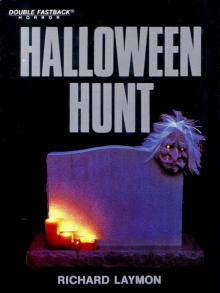 HALLOWEEN HUNT
HALLOWEEN HUNT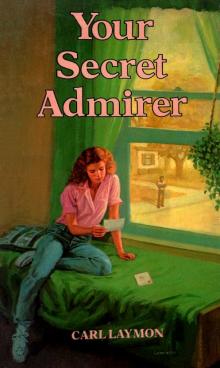 YOUR SECRET ADMIRER
YOUR SECRET ADMIRER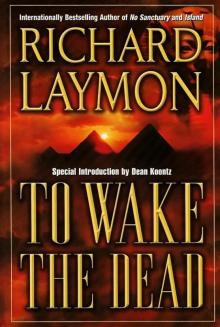 TO WAKE THE DEAD
TO WAKE THE DEAD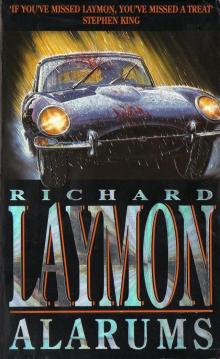 Alarums
Alarums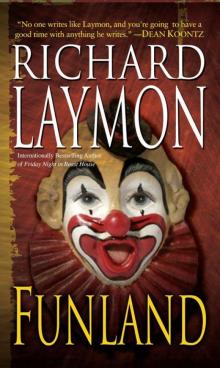 Funland
Funland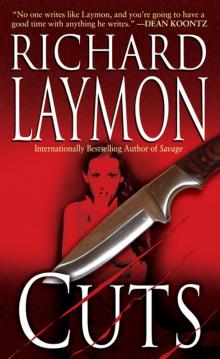 Cuts
Cuts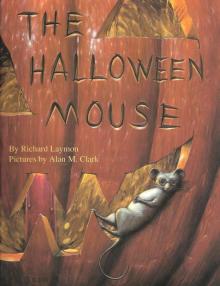 The Halloween Mouse
The Halloween Mouse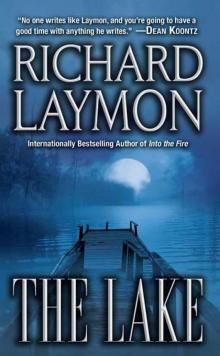 The Lake
The Lake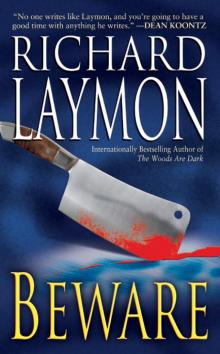 Beware
Beware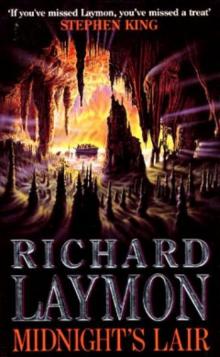 Midnight's Lair
Midnight's Lair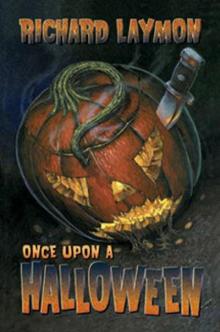 Once Upon a Halloween
Once Upon a Halloween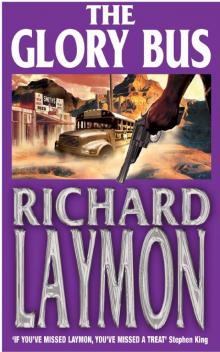 The Glory Bus
The Glory Bus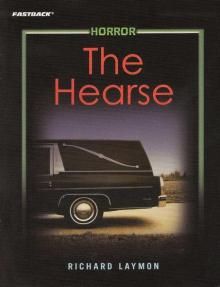 The Hearse
The Hearse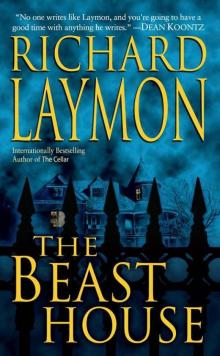 The Beast House
The Beast House Dreambox Junkies
Dreambox Junkies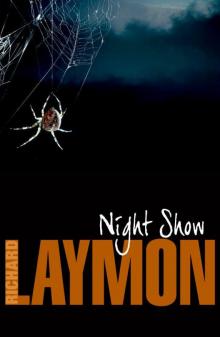 Night Show
Night Show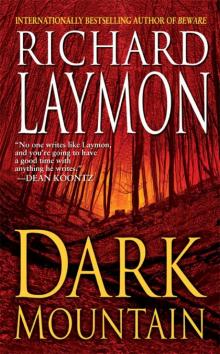 Dark Mountain
Dark Mountain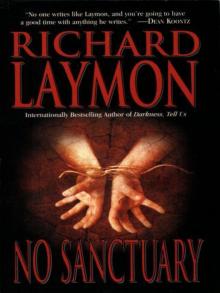 No Sanctuary
No Sanctuary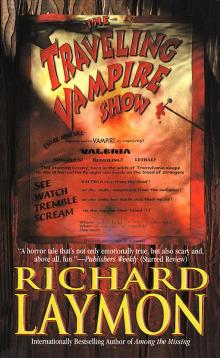 The Traveling Vampire Show
The Traveling Vampire Show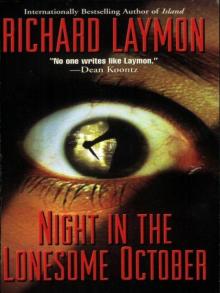 Night in the Lonesome October
Night in the Lonesome October The Woods Are Dark
The Woods Are Dark Blood Games
Blood Games Thin Air
Thin Air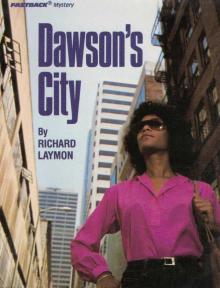 Dawson's City
Dawson's City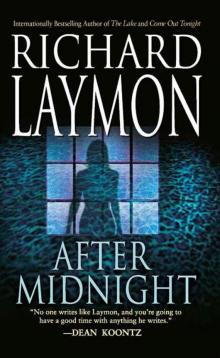 After Midnight
After Midnight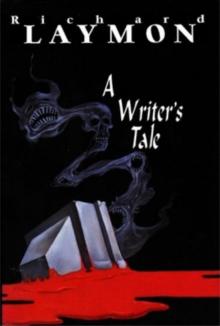 A Writer's Tale
A Writer's Tale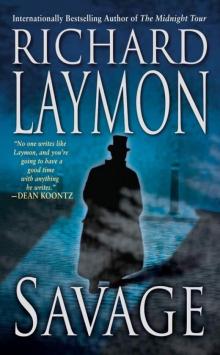 Savage
Savage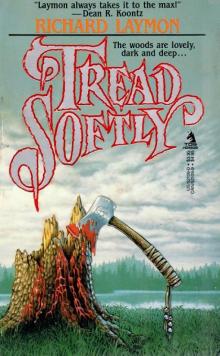 Tread Softly
Tread Softly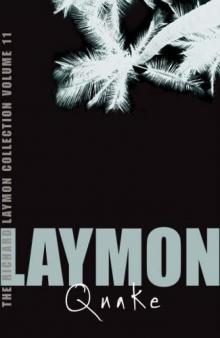 Quake
Quake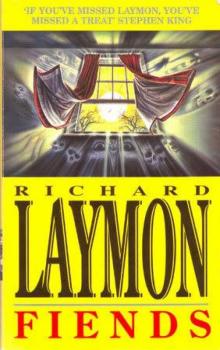 Fiends SSC
Fiends SSC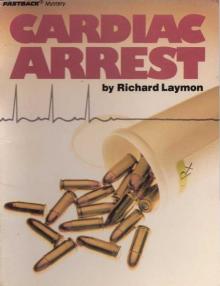 Cardiac Arrest
Cardiac Arrest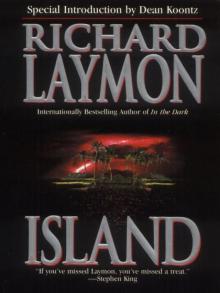 Island
Island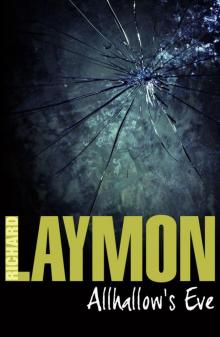 Allhallow's Eve: (Richard Laymon Horror Classic)
Allhallow's Eve: (Richard Laymon Horror Classic)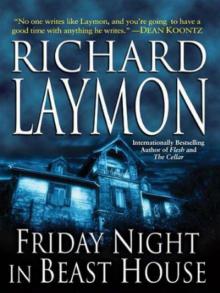 Friday Night in Beast House
Friday Night in Beast House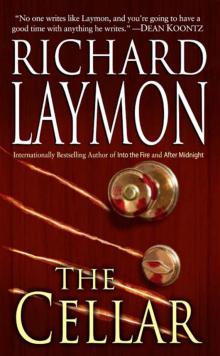 The Cellar
The Cellar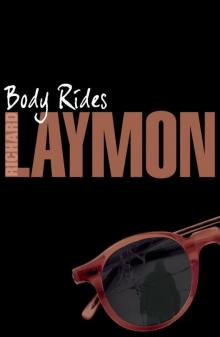 Body Rides
Body Rides The Wilds
The Wilds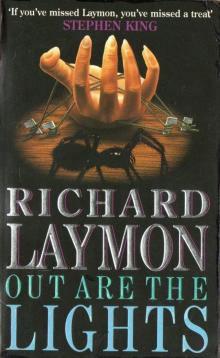 Out Are the Lights
Out Are the Lights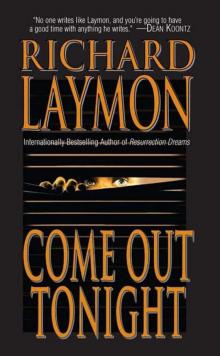 Come Out Tonight
Come Out Tonight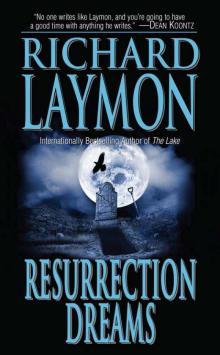 Resurrection Dreams
Resurrection Dreams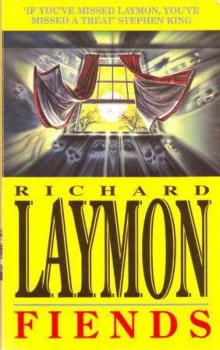 Fiends
Fiends The Cellar bhc-1
The Cellar bhc-1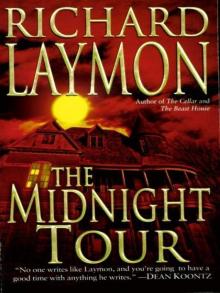 The Midnight Tour
The Midnight Tour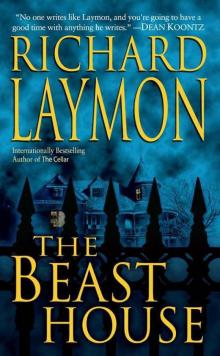 The Beast House bhc-2
The Beast House bhc-2 Endless Night
Endless Night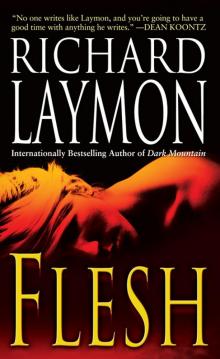 Flesh
Flesh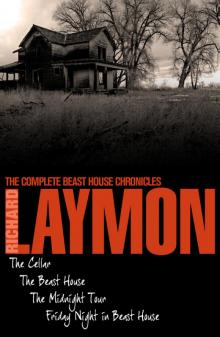 The Complete Beast House Chronicles
The Complete Beast House Chronicles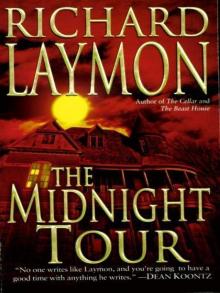 The Midnight Tour bhc-3
The Midnight Tour bhc-3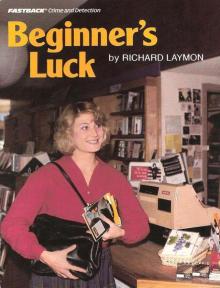 Beginner's Luck
Beginner's Luck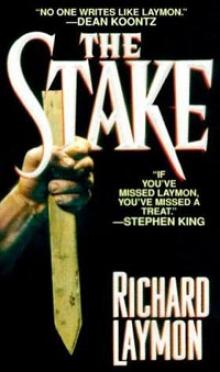 The Stake
The Stake